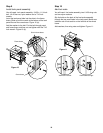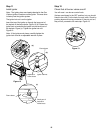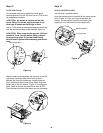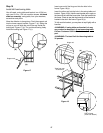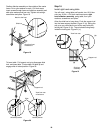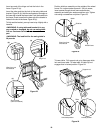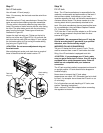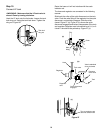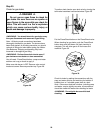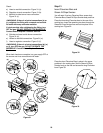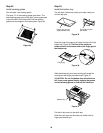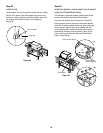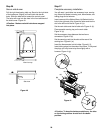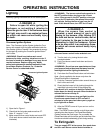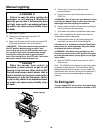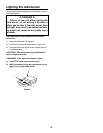Special offers from our partners!

Find Replacement BBQ Parts for 20,308 Models. Repair your BBQ today.

Buy Weber Grill Parts. It couldn't be easier. Find your Weber parts here.
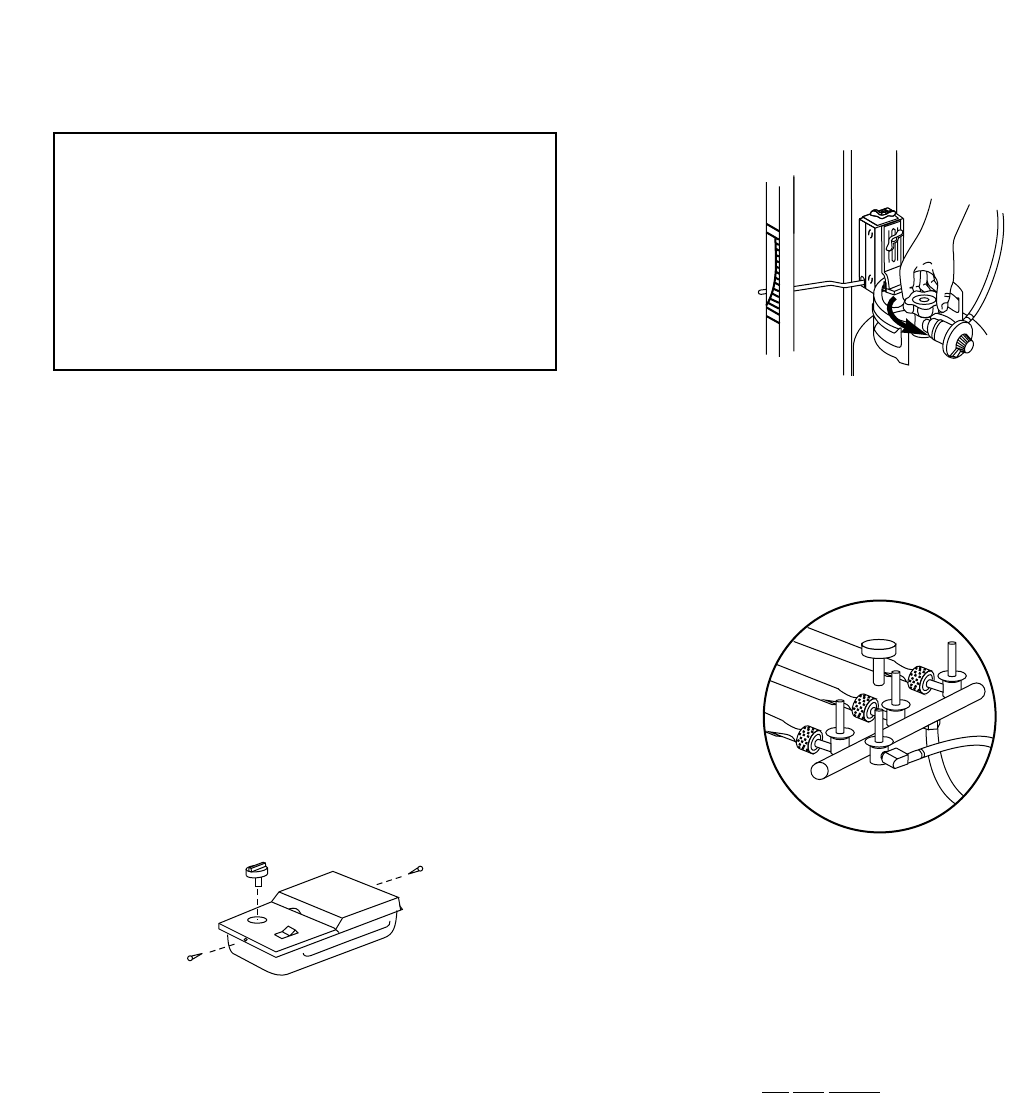
To perform leak checks: open tank valve by turning the
tank valve handwheel counterclockwise. Figure 29.
Put the FlameCheck button on the FlameCheck valve.
When checking for gas leaks, push the FlameCheck
button down and hold down until leak checking is
complete. This will allow gas to fill the hoses and
manifold. Figure 30.
Check for leaks by wetting the connections with the
soap and water solution and watching for bubbles. If
bubbles form or if a bubble grows there is a leak.
Note - Since some leak test solutions, including soap
and water, may be slightly corrosive, all connections
should be rinsed with water after checking for leaks.
ƽWARNING: Do
not ignite burners while leak
checking.
22
Step 20
Check for gas leaks
ƽWARNING: You should check for gas leaks every
time you disconnect and reconnect a gas fitting.
Note - All factory made connections have been
thoroughly checked for gas leaks. The burners have
been flame tested. As a safety precaution you should
recheck all fittings for leaks before using your Weber
Gas Barbecue. Shipping and handling may have
loosened or damaged a gas fitting.
ƽWARNING: Perform these leak checks even if
your barbecue was dealer or store assembled.
You will need: FlameCheck button, a soap and water
solution and a rag or brush to apply it.
Make sure side burner is OFF. Remove valve control
knob and screws. Remove porcelain top. Figure 28.
Figure 28
ƽ DANGER ƽ
Do not use an open flame to check for
gas leaks. Be sure there are no sparks or
open flames in the area while you check for
leaks. This will result in a fire or explosion
which can cause serious bodily injury or
death and damage to property.
F
E
F
E
Figure 29
Figure 30



